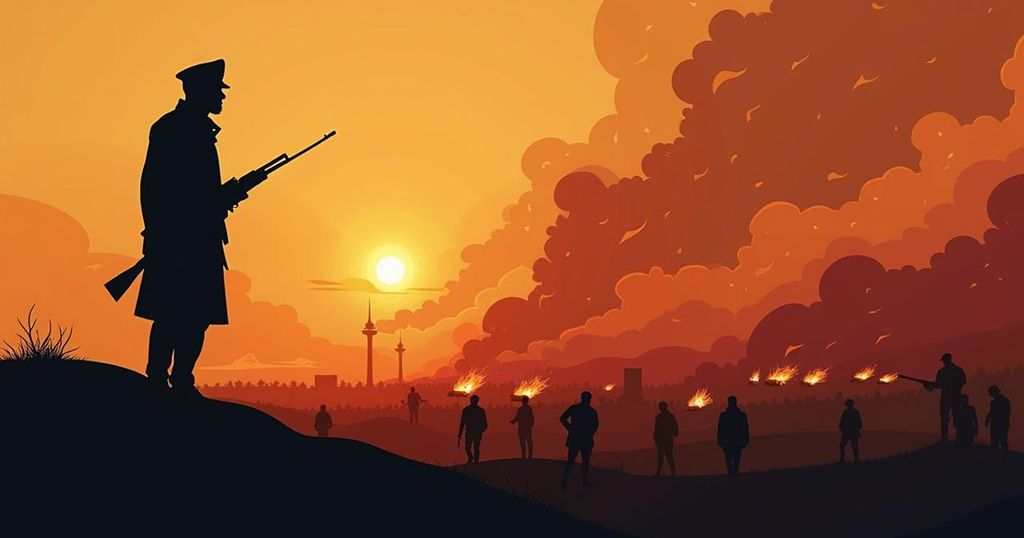The Consequences of Assassinating Hassan Nasrallah: An Analysis of Military Strategy and Regional Stability
The assassination of Hassan Nasrallah, Hezbollah’s leader, underscores the complexities of regional conflicts in the Middle East and the limitations of military solutions. Although initially perceived as a strategic victory for Israel, historical patterns suggest that removing a leader may not eradicate the underlying threats posed by organizations like Hezbollah. Instead, it may lead to more extremism and deeper divisions, perpetuating the cycle of violence that has characterized the region for decades. The future of Hezbollah and its influence on Lebanon remain uncertain in the wake of this critical event, with indications that deeper systemic issues need to be addressed for any hope of lasting peace.
The recent assassination of Hassan Nasrallah, the leader of Hezbollah, has been portrayed by some as a decisive move for Israel, echoing past strategic eliminations that were believed to have significant impacts. However, the context today indicates that such acts of aggression often revisit their perpetrators with unintended consequences. Despite Nasrallah’s captivating charisma, his leadership has transformed Hezbollah from a resistant force into a significant player in regional conflicts, mired in corruption and complicity with authoritarian regimes. Israel’s past experiences have shown that targeting leadership does not necessarily eradicate militant threats; rather, it can lead to the emergence of more extreme successors and deeper entrenchment of adversarial positions. Under Nasrallah’s guidance since 1992, Hezbollah successfully resisted Israeli forces in southern Lebanon, culminating in their withdrawal in 2000. Yet, this victory was not without its flaws as many Lebanese grew weary of the group’s militaristic and theocratic inclinations. The recent waves of violence, as seen in the aftermath of the Oct. 7 attack, perhaps stem from a miscalculation of military capabilities on both sides. Nasrallah’s strategy had shifted towards an aggressive stance against Israel while also engaging in brutal repression within Lebanon and Syria. The layers of complexity in such conflicts are exacerbated by dynamics stemming from regional politics, longstanding grievances, and varying allegiances, particularly concerning Iran’s significant influence over Hezbollah. Despite its former sentiments of resistance, many citizens now regard Hezbollah as another entity within the corrupt warlord class of Lebanon, undermining their original ideals. Ultimately, the killing of Nasrallah may not translate into long-term peace. The perpetuation of violence and counter-violence suggests that the underlying tensions will continue to manifest, drawing in regional actors and perpetuating a cycle of chaos. Without addressing systemic issues or engaging constructively with local sentiments, Israel might find itself harboring more intense conflicts rather than resolving existing ones. Consequently, the region remains mired in a tumultuous struggle wherein the promise of lasting peace appears more elusive than ever.
The article explores the political trajectory of Hassan Nasrallah as the leader of Hezbollah, discussing how his assassination reflects a broader pattern of conflict management in the Middle East. It highlights the complexities of regional politics, especially Israel’s historical approach of eliminating adversaries and how such strategies do not necessarily lead to increased security or lasting peace. It contextualizes Nasrallah’s leadership in terms of the evolving nature of Hezbollah and its role amid regional confrontations, detailing shifts from resistance to internal oppression and complicity with authoritarianism.
In conclusion, the assassination of Hassan Nasrallah may symbolize a tactical gain for Israel; however, it stands to perpetuate a cycle of violence rather than yield sustainable peace in the region. The historical precedents indicate that such leadership moves could inadvertently strengthen adversarial positions and entrench divisions. The ongoing struggle reflects deep systemic issues that are unlikely to be resolved through military might alone, underscoring the necessity of addressing underlying grievances and fostering dialogue.
Original Source: foreignpolicy.com




Post Comment